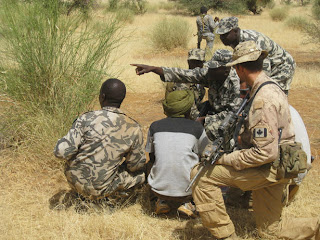24 Comments
The surprise review comes amidst criticism that the Conservative government had betrayed a promise of Canadian citizenship to Afghans who had worked alongside Canadians on the battlefield.
Yet the government officials who reviewed his application doubted his claims that Taliban insurgents want to kill him as retribution. Sharifi said he had been hunted by insurgents on motorcycles because of his work with the Canadian military.
OTTAWA—More than 100 Afghan citizens who put their lives on the line to help Canada’s Afghanistan mission are getting a second chance to resettle here.
The Prime Minister’s Office has quietly ordered the federal immigration department to review the cases of Afghan citizens who helped Canadian diplomats and soldiers in Kandahar and Kabul — often at great personal risk — but were snubbed in their bids to come to Canada, theStar has learned.
The news could mean that Sayed Shah Sharifi, an interpreter whose story has been featured in the Star, could get another shot at coming to Canada. His initial application had been rejected, even though his service to the Canadian military won him accolades.
| Niaz Mohammed (aka Junior) Afghan Terp who lost both legs while serving Canada |
As well, Harper’s office has removed one contentious criterion that had been seen as a roadblock to many Afghans seeking to make a new life in Canada, according to a source familiar with the file.
No longer will applicants have to demonstrate they face “extraordinary and individualized risk and serious injury” because of their service to Canadian troops, a subjective evaluation that prevented two-thirds of the candidates from qualifying.
While the resettlement program had dangled the promise of Canadian citizenship for Afghans who aided Canadians troops and diplomats during their Kandahar mission, many of those applications in fact had been rejected out of hand.
Among those was Sharifi, a 23-year-old combat interpreter, whose bid to come to Canada was rejected even though he had served the Canadian mission for the required 12 months and had won accolades from the military.
| Afghan terp... showcasing just how much risk their job entails |
Immigration Minister Jason Kenney announced in 2009 that he wanted to protect Afghans who could show “individual risk” because they had worked with Canadians in Kandahar. In return for their work, they would be offered fast-track immigration processing to come to Canada.
Yet the program became bogged down in bureaucratic delays and as of Dec. 31, 2011, only 97 applicants, plus their family members, had actually made the move to Canada.
But before Christmas, the order came down quietly from the Prime Minister’s Office to take another look at the cases that had been turned aside.
Those instructions are to review rejected files and accept Afghan nationals, such as interpreters, cultural advisers and others who can show proof that they worked with Canadians for at least 12 months.
“Obviously it flowed down from the political leadership to change the program,” said one source familiar with the issue.
Then, at a meeting last month of Ottawa’s Afghanistan Task Force — a committee of departments involved in the country, such as the RCMP, the defence department, foreign affairs and development — immigration officials revealed that changes were afoot to the program at the behest of the PMO.
They proposed a review of rejected applications and relaxed criteria that could offer hope to those already in the pipeline.
By the end of January, 159 files were under active review, the Star has learned. Decisions will be made by Feb. 15 on who is eligible, and those accepted will have to arrive in Canada no later than July 1.
While the program is not accepting new applications, there have been questions about trying to reach interpreters who didn’t apply the first time but might now have a shot under the revised criteria.
A spokesperson for Immigration Minister Jason Kenney declined to comment whether a fresh review was underway in the department.
“The government of Canada has now received all applications under this program. Many of them remain under review. We will not comment on operational matters for ongoing programs,” Candice Malcolm said.









